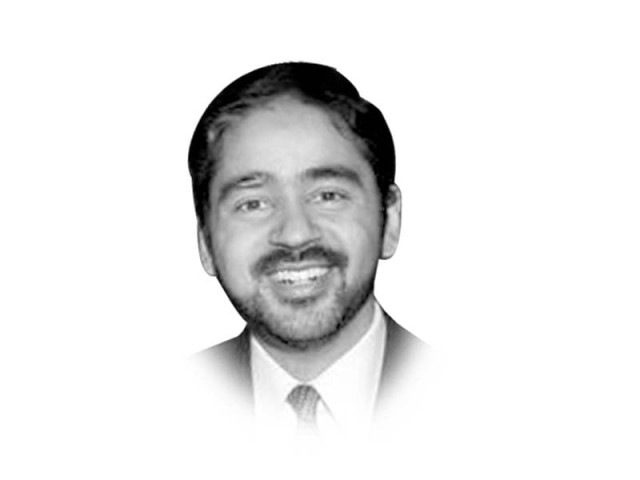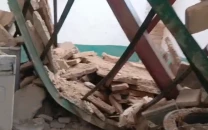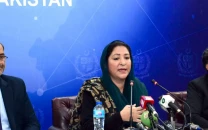Medical woes : Pakistan needs to own its problems to find appropriate solutions, says expert
Boston University researcher deplores lack of govt interest in public health issues.

“It is an honour. I feel blessed to be part of the AIMBE College of Fellows,”
Muhammad Hamid Zaman is a director of laboratory of Engineering Education and Development, an Innovative Engineering Education Faculty Fellow, and associate professor of biomedical engineering at Boston University.
A leading American science magazine listed PharmaCheck, a technology introduced by Zaman in 2013, as one of the top ten ‘World Changing Ideas’. It allows the test of quality and potency of a drug in a few minutes.
“It is an honour. I feel blessed to be part of the AIMBE College of Fellows,” said Zaman in an interview with The Express Tribune.
The focus of his research has been two fold: developing new tools to understand the growth of tumors which will help fight the disease; and developing new technologies to address public health challenges in developing countries.
He is trying to promote PharmaCheck in developing nations to help address issues of substandard medicines.
He practices and teaches in the US but issues facing Pakistan, especially in the field of medicines, are close to his heart.
Zaman says substandard drugs and pharmaceutical companies are a major concern in Pakistan. In November 2013, he offered the technology to help address the issue but received a cold response from the government and the industry here.
“Sadly, health is not the priority of the state. Besides, with devolution of the health ministry and lack of interest from federal and provincial governments, little progress has been made in health care,” he said.
He added barcodes or other identification methods being used on medicines are not enough. “You cannot rely only on barcodes and boxes. You have to test the actual pill or syrup.”
He cited the 2012 example of Punjab Institute of Cardiology incident where 165 people died after consuming spurious drugs. “Other disasters like this can happen,” he feared.
“We are not doing enough testing before or after the drug comes to the market,” he said, and suggested understanding of the problem, policy making and innovation to ensure drug quality. “So far, there is no interest in any of these areas, which is both sad and very frightening,” he remarked.

He says the challenges of biomedical engineering in Pakistan are not impossible to tackle. “Firstly, people have no idea what the field really is. Most think this has to do with hospital equipment and medical technology. These things are a minor part of the field. It encompasses a lot more than just medical technology.”
“Secondly, problem comes from the gulf that exists between the country’s medical professionals and engineers. Every time I talk to biomedical engineers in Pakistan, they hardly spend any time with doctors or clinicians, who in turn are equally unaware or unwilling to work with engineers.”
He added that in many parts of the world, doctors and engineers sit side by side to solve these complex problems. “Until this happens, no impact could be made,” he stated.
Talking about the final point, the medical expert said “Finally, Pakistan needs to own its problems and work to solve them. There is also a substantial gap between industry and research. Industry is not interested in research and development in biomedical engineering while students and scholars are also not reaching out to the industry.”
Zaman is also unimpressed with the state’s lack of interest in these issues. “There is simply no real interest or priority. We go from one crisis to another and never think beyond those in terms of creating a long-term system to cope with these problems,” he said.
To a question about lessons from the American health sector which can be applicable in Pakistan, he said the most relevant one is to engage higher education and research sector in national development. “In the US, the university research is the backbone of innovation and growth. Somehow, we have written that off completely in Pakistan. Second, there is a gulf of suspicion between the universities and the health sector which needs to be bridged,” Zaman said.
He called upon biomedical professionals to come out of their comfort zone and think out of the box to solve the country’s most pressing health problems. “Our problems need our solutions. We can find solutions if we try hard,” he concluded.
Published in The Express Tribune, January 26th, 2015.


















COMMENTS
Comments are moderated and generally will be posted if they are on-topic and not abusive.
For more information, please see our Comments FAQ